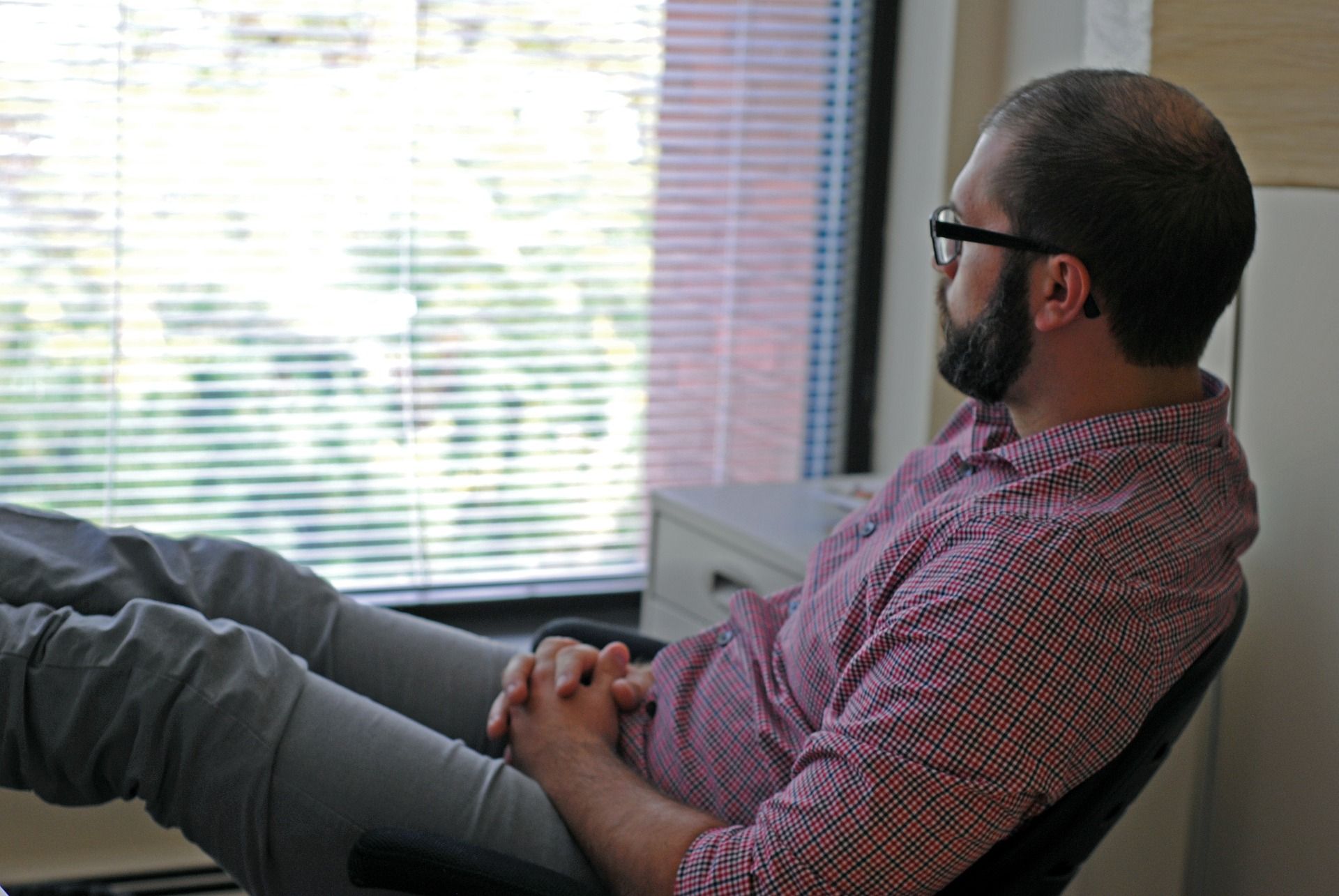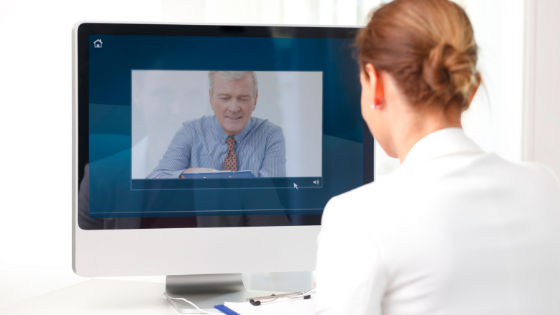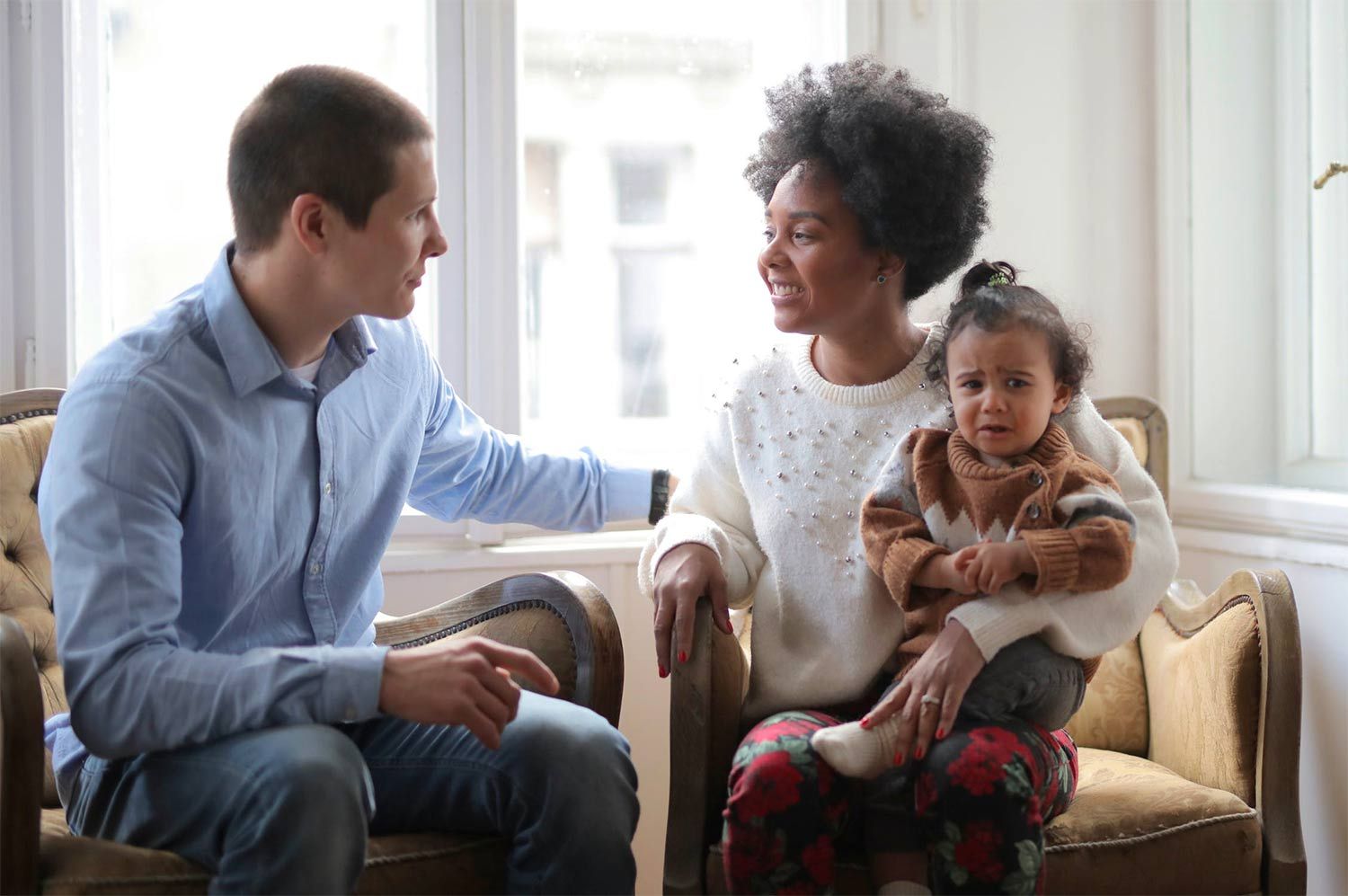11. Vulnerability, Grace, and The Power of Church Community with Randy Draughon
- What happens when pastors are isolated
- How pain can be a good thing
- Vulnerability as a gift we give each other
- How to build a Christian Community
Verses discussed: Ephesians 1, Tim 1:15, James 5:16
Resources and Links:
Midtown Fellowship, Nashville
Transcript of Episode 11
Welcome to Hope for Anxiety and OCD, episode 11. Today’s show is on the incredible power of Christian community and how that can impact mental health in a positive way. I wanted to make a very special dedication of this episode on Christian community to BJ Howard. In the process of putting this recording together, I’ve found out that he passed away.
This was someone that was very connected and involved in church, connected to encouraging and mentoring people that were younger than him. He was someone who was able to give me a lot of hope in my life when I needed it the most to keep going and to keep following the Lord and keep trusting his plan for my life.
Thank you so much BJ for your influence. I hope that in some small way this episode and not just this episode, but this podcast is a way to move forward and can carry the torch of the light and the love that you showed to me, to be able to show that to other people.
I got the opportunity on this episode to interview one of the local pastors in Nashville, Randy Draughon. He is the Pastor of Midtown Fellowship, and we were able to get into some great dialogue about being a Christian and living in the Christian community and what that looks like.
Let’s dive right in.
Carrie: For those that don’t know, tell us a little bit about yourself.
Pastor Randy: I’ve been in Nashville for almost 30 years now, married have three kids. I started Midtown Fellowship around 2001. Our passion then was to go into the heart of the city and to start a church for people that had given up on church.
So we were from a very traditional style church and we shed the skin of all that and started a church and a skate park. Most of the folks that were coming to Midtown were musicians or college students. Back then the city had really not gone through any kind of transformation. This was pre-Titans.
Nobody really lived down there unless they had to, which meant that they couldn’t afford to live anywhere else. Downtown was the cheap place to live.
Carrie: Wow, not anymore.
Pastor Randy: It’s true. We’ve seen a lot of change over the years and we partnered with a ministry called Rocket Town and they built a skate park and a big music venue down in the city.
When we got to a point where we needed a bigger space, they opened their doors and they were incredibly generous to us and we needed that because everybody coming to our church was so poor. None of them had any money. We had a philosophy early on never to take an offering because we were shedding the skin of the idea that when you come to church, the church wants so much from you. We’re operating from the philosophy of we just really believe that God has so much to give to you. So God just took care of us.
Carrie: How in the world, like, did you get paid? You didn’t take up an offering. This is incredible.
Pastor Randy: We just prayed and people just gave. I really can’t tell you that we ever spent much time around the budget, trying to figure out how to make it happen. We just were so busy just doing the work of ministry, meeting with a lot of people. We really had a simple philosophy and that was, we really believe that when God impacts one person, the ripple effect of that to their community and their family actually ripples out into the city.
And so we spend a lot of time trying to keep bongo, Java, and business and Fidos and all the coffee shops. You’ll appreciate this, our first offices were on 12 South because it was the cheapest place to get an office. It was just a rolling crime scene over there and obviously, it’s all changed since then.
Carrie: A lot has changed in Nashville. I’m sure over the years that you’ve been there and in terms of like ministry that has shifted somewhat, the population that you’re ministering to, is it more diverse as Nashville becomes more diverse?
Pastor Randy: You can tell me how much you want to get into this. I’m happy to talk about what we’ve done over the years. Midtown, about the first 18 months, was a slow crawl. We had maybe 10 people coming to church and then it began to build and we started to see the Lord really doing some really cool stuff in people’s lives. When we moved to Rocket Town we literally bought a hundred used folding chairs and we called it the purchase of faith.
We believe that the Lord was going to fill these hundred seats and within a year we had close to a thousand people that were coming to services at Rocket Town, and it was insane. We couldn’t get everybody in. In fact, the stage was full of chairs and the floor, and the balcony.
We really had a dilemma because we realized that the bigger that we were getting the least effective we were at reaching our mission, which was creating a safe place for people that had given up on church, that we were really good at attracting Christians from other churches because we’re a huge artist community. So our bands were killer. Like you can imagine coming to church and looking up in the band area because we wouldn’t put our band on the stage.
We actually moved them off to the side where you couldn’t see them because none of our artists wanted to perform on Sunday morning so it was about the Lord. It wasn’t about them and all of them were professional musicians. So the big dilemma that we had is, do we go to multiple services and see how big we can get this?
I didn’t feel led to do that. So we went to San Diego and we met with a group of people that helped start a Tim Keller’s church up in New York. They were doing something very unique out in California that we brought it back to Nashville. We customized it and then adopted it for ourselves, which was to, instead of going to multiple services, why don’t we take a big chunk of these people and send them back to their slice of Nashville and let them be the church in their community.
Carrie: A lot of churches are doing that now having kind of multi-site campuses.
Pastor Randy: The uniqueness of our model is really based on a couple of ideas. One is then this will interest you as a counselor, is that we really believe that pastors can sometimes be the most dangerous person in the church. They get isolated and isolated men that have power are very dangerous people when they’re isolated emotionally or they’re isolated relationally. There’s some expectation that a whole community of people are putting on them, but they know internally they don’t live up to. That can be a really dangerous scenario for him and If he’s dangerous, then he’s dangerous to the people he’s shepherding too. So we came up with this model of grading campuses. We’re one church, but we have multiple campuses and every campus has its own pastor, but that pastor is in a fellowship with other pastors and we take serious responsibility for one another’s emotional journey, spiritual journey, the whole heart. So we’re kind of a support group for one another.
Carrie: How did you, your church get to that point where you realized we really need to invest in that, not just the spiritual health of our pastors, but the emotional health and the other aspects?
Pastor Randy: Great question about how we got there. The easy answer is I think the Lord just reviewed this so many times through all our failures that he drove us there.
I think maybe the more detailed answer is before coming to Nashville, I’ve worked for some really large churches. I was in youth ministry for 15 years and I got to witness firsthand like national ministries and the men that led them and realized that they were isolated and that the trickle-down effect of that, wasn’t always a pretty story.
When you peek behind the curtain and we began to dream about what would it be like for a pastor to actually open the curtain? And that he ministers out of that place where he’s first in line, as the one who needs grace, He’s kind of the chief repenter and his community that he’s the most vulnerable of anybody.
We realized that the only way that’s going to happen is if we began to mature emotionally and began to mature spiritually at the same time. I’ve seen spiritually mature people that can quote the Bible from the beginning to the end and have these huge prayer lives but they’re not emotionally mature and as a result, a lot of times they’re just hurtful people and they’re not very safe to be around.
Carrie: They don’t know how to have healthy relationships and form healthy connections.
Pastor Randy: Yeah and you know, that’s fair because a lot of times, pastors, men that are called into ministry and women are called into ministry too.
A lot of times they’re intellectuals. They love to study. They love teaching. They love books more than they love people. So a lot of times they’re disconnected from their own heart and therefore they’re disconnected from the people around them because I don’t believe you can be disconnected from yourself and actually connected with other people. I also believe it hinders your connection with the Lord. But if you’re not self-aware enough to know how you need the Lord and where you’re at, I think it’s very difficult to have a meaningful, profound relationship with him.
Carrie: Right. I was thinking about that versus you were talking how
Paul was a big spiritual hero in a lot of ways, but he said himself, like, “I’m the chief of sinners” and such a puzzling verse because you’re like, how can you be the chief of sinners? But he just had that understanding and that awareness of like, “I need all of the grace too.”
I think that’s really cool what you’re talking about to this overlay of like where Christians meant to live in community and so that’s not healthy with pastors being isolated. Also this sense of our relationships with other people and those connections, a lot of times maybe mirroring our connections with God. Would you agree with that?
Pastor Randy: Yeah. Say that again and say it a little differently.
Carrie: Okay. I think that a lot of times we place on God like our ability to connect with him. We place on him things that we’ve received from other relationships in our life, often parents, fathers. And so if our fathers were disconnected or neglectful, then we receive this sense from God that we feel like God’s just kind of distant.
He’s not really there. Sometimes being able to connect healthily with people can help us heal some of that, like Christians. I don’t know the God in you maybe healing that piece of being able to love someone in Christ may help them connect more with God. I don’t know if that’s making sense.
Pastor Randy: That’s so good and you’re really the expert here. I’m just dabbling in your world when I talk about counseling here. We all have trauma in our lives and some of us have pretty severe trauma and it’s trauma that’s either been produced through parents or through relatives. Some of us have trauma that we produced ourselves and that trauma often I’ve seen, it digs these trenches in our lives that it seems like whenever we enter into any situation that triggers that trauma, which could be relational, we tend to go back to that ditch. So if our father was harsh with us, the only way we ever experienced God is as a harsh God. That’s why one of my mentors always tells me if something is hysterical, it’s probably historical that if we don’t understand ourselves enough to know that we have that trauma, then we’re not aware enough to know that I need healing in that trauma so that I can rewrite the script in a fresh healed way. Maybe it’s more than a healed way. Maybe it’s a healthy way.
Carrie: What was that journey for you of your journey of self-evaluation?
Pastor Randy: Well, for me personally, I’ve always sought out older men that would invest themselves in me. I’ve been fortunate I’ve had some amazing men that have the gift of listening and they also have the gift of wisdom. So they let me talk myself out and then they speak wisdom into those places. And if it’s true that our thoughts are really a bad neighborhood and we should never go there by ourselves then the men in my life have gone there with me. They’ve helped me fight the shame stories and we all have shame stories. But probably the most, I would say maybe one of the most impacted things was about six years ago. Our oldest son at 25 died unexpectedly. That story of grief for me and my wife and our family was so traumatic for me that it caused me to start to question everything. In fact, to get a little vulnerable here, I couldn’t let go of the thought that it was my fault and I felt deeply responsible for that. And as I began to unpack, why is that? I began to realize there were a lot of my own issues of codependency that I have not dealt with growing up. I grew up in a home where addiction was a part of our home. And so I just jumped into a whole community of people that had shared experiences like that and began to unpack my own lenses that I’ve put on to how I process my life and how I’ve processed the Lord and how I process other people. So it’s been an amazing journey over the last six years of embracing the joy of grief and the healing power of community and the Lord.
Carrie: I think a lot of times it’s the tragedy points that brings us closer to God and closer to other people, but it can really challenge your theology in the best way and wonder if that happened for you.
Pastor Randy: I think that pain is so misunderstood because I think that many of us live and I don’t want to, maybe I should use an “I” statement here. I lived thinking that if something is painful that means something is wrong, that we didn’t get something right because the right life is not a painful life, but the reality of every relationship is there’s pain. And that’s a part of relational health is realizing that if you’re going to love somebody you’re going to hurt and if you’re going to let somebody love you, it’s going to hurt. That pain is a part of the relationship.
It took a real season to realize that pain doesn’t have the ability to change what is true, but pain does have the ability to change what I believe is true. For me to bring my pain to my community and for me to bring the pain narrative to my community and whether that was through counselors or whether that was through just mentors or friends or people that were fighting for me, letting them fight for me so that my narrative of truth [00:16:12] can come alongside my pain and really call it good, which may sound strange to people that are in pain, that your pain is good, but it can be because the Lord uses that to bring healing in her life.
Carrie: Just as a connecting point to him and to other people.
Pastor Randy: And I mean, that’s what I’m saying, I’m swimming in your waters right now. You’re the pro in this area, but I’m just sharing my own personal experiences. Not necessarily an ocean of therapeutic knowledge.
Carrie: I think it’s really great though, to hear these kinds of messages from pastors, because depending on people’s backgrounds, they may not have had a pastor that has ever been this vulnerable about difficult things in their life like you were talking about the isolation. Maybe there’s the sense that I have to present as the most spiritual person in the room and therefore, somehow that means I present with no problems or no pain. Anyway, I have the Lord. The Lord is good, nothing wrong here.
Pastor Randy: You think about it that if the only time I can preach is when I’ve mastered what I’m preaching and I want to preach with vulnerability. I really don’t have any sermons because who can do that unless you put up a facade and you’re a counselor. What happens when people put on mask and they spend their lives to manage an image and they manage this facade so they can keep their jobs, which is their income.
They can keep people’s respect, which is, they believe my reputation is that if everybody was like me, then we would all be so much like Jesus. It takes a lot of energy and effort to do that so what would it be like for the joy of preaching from a place of, “Hey, I really need this more than any of you need it.”
I’m preaching from a place where I feasted on the Lord this week and I’m just sharing with you what he served up for me. If you have a community that would allow you to do that it’s a beautiful place to be.
Carrie: I love that. I think there’s something really about authenticity that’s attractive to people [00:18:25] and unfortunately, the church has gotten a bad rap for being fake. A lot of times, or Christians have gotten a bad rap for being hypocritical.
Pastor Randy: Because we are, but some of it’s a good rap.
Carrie: Some of it’s true. I used to become frustrated when people would talk about Christians becoming hypocritical and then I realized that Jesus was most frustrated with religious people in the Bible. And so I was like, “Oh, it bothered Jesus too.” There’s a relate-ability there. So if you’re frustrated with the church or people who appear religious, then you know, Jesus understands that.
Pastor Randy: Right and so true. I think that there’s such a gravitational pull to unhealthiness. I mean, you’re a counselor. There are a lot of people that don’t come to see you, people that their whole world of dysfunction and they live in it until they go to their grave.
There’s a huge pull to having a world that you completely control and that it’s not dangerous and you’ve minimized pain by medicating or avoidance or distraction. I think that that pull is so attractive when you realize that vulnerability and openness and willing to admit that your imperfect is so scary.
I love what Bernay Brown talks about is that courage is the ability to let yourself be seen and it really is true. That takes a lot of courage to let your true heart live itself on the outside.
I don’t think that any of us can do that by ourselves. Maybe some can, but I think it takes a community of people that are jumping into that water with us to give us the courage to keep jumping into it.
Carrie: I’ve been processing this verse in James that talks about how you confess your sins to one another and pray for one another that you will be healed. I just find that so powerful because we’re told Jesus is our high priest. So he’s the one that has to absolve us, so to speak of our sin, who we go to for forgiveness. But yet we’re told to confess to other people for this level of healing. That I believe is emotional of just saying, “look, I’m struggling and I need your support and love and prayers.”
Pastor Randy: I’ve never been involved in AA, alcoholics anonymous. I have been involved with adult children of alcoholics ACA, and there’s a fundamental belief in those communities is that when I get vulnerable, when I speak out loud, what I have on the inside of me, there’s something that gets healed in me when I’m sharing that in a community that’s accepting me and go on me too. When I get vulnerable and also I believe it heals something in you, it’s a gift that we give to one another that knits us, not just together, but gives us strength and courage to live our hearts on the outside.
Carrie: Right. Do you believe that kind of going back to isolation? So for people who don’t have these communities, maybe where they feel like they can be safe and vulnerable and open up, whether that’s a church, small group or support group, or something of that nature. Do you feel like that isolation just kind of continues to feed the dysfunction you were talking about?
Pastor Randy: It’s strange that the things that we begin to accept in our lives and even the routines that we began to allow to exist in our lives. And I think that for a lot of people that experience things like we’ve talked about pain, but also like loneliness that they receive loneliness as a curse rather than the emotion of loneliness is actually a blessing and understanding what that blessing, that inviting emotion is actually inviting you to.
They use that loneliness as a means by which they stir in shame into their story and then stepped back from community because they don’t feel like they’re worthy of community and then when you pour resentment on top of that shame and that loneliness, it leads to a real isolated place. But if we understand that loneliness is a gift from the Lord it’s a part of our hearts that’s crying out for, longing and for community and whether I’m lonely for myself or I’m longing a friend or for Jesus. It’s inviting me to something and that’s why we need community because that takes a lot of courage and loneliness to call somebody and go, “I need you, could we go out to dinner or can we go grab coffee?” or “Would you consider meeting with me once every Wednesday morning and let us just encourage each other.” That takes a lot of courage because that person may say “no”.
I think it’s, sometimes it feels easier just to isolate and medicate which is a tragedy. It’s really why we do what we do with our pastors because in ministry, who do you call and say, “I need you” when you’re the pastor of a church, you’re the person everybody calls for, you’re the need meeter. You’re the one that helps everybody else out and the tragedy of that is, imagine a pastor who is very healthy in his need for his community.
I’m not talking about being over needy in the sense of inappropriate but really needing the strength of the community to be spiritually healthy.
Carrie: Don’t most pastors have connections to other pastors though? I’m just thinking about this from the therapeutic lens. If I have a really difficult day or really hard session, I could name for you three or four people that I could call and in a confidential manner and say, “this is what happened to me today” or “this was a really hard session I’m having a hard time dealing with it personally.”
Do you feel like most pastors have that? Or some do and some don’t.
Pastor Randy: My experience is that most pastors don’t have that. My experience is that most pastors would say that they have friends who are pastors, but that their relationship with them is not on the level that you just described, where I can call that guy if I have to four times a week and connect with them, or even once a week. I think I don’t have them in front of me, but you can google search stats on how pastors are doing and it’s not a pretty picture.
Carrie: Just in terms of a lot of people dropping out of ministry or moral failings.
Pastor Randy: Yeah and even surveys about, do men feel fulfilled in their calling? Would they continue to do with what they’re doing if they could get another job?
It’s just ministry doesn’t have to be this miserable place of isolation. It’s miserable in the sense that you’re suffering as you’re caring for sheep, which is a hard, hard job. But you can do it in such a way that if you’re self-aware enough to take care of yourself so that you’re healthy and taking care of other people.
Carrie: That’s really huge. Being able to make sure that your needs are getting met and as Christians, yes, that’s from the Lord, but it’s also from Christian community. I don’t think we can just say, “I go to Jesus and he fills me up.” That’s great but our faith is so communal that we need that interaction and we need the accountability and the people to call out our blind spots, the things that we’re not seeing.
Pastor Randy: Yeah, we were born into a family. I love worship music, but I always chuckle when I hear songs that “All I need is Jesus” and as a pastor, I’m like, “Okay, that’s good” but that’s not what Jesus says. Even God in the garden said to Adam, it’s not good that you’re alone. Adam had God, he’s walking in the garden with God and God said, yeah, you need community. So we’re gonna create community right here. So I need people in my life and it’s how I often see Jesus is the community that God puts around me or the community I help build around me. And that’s the thing I see a lot is that people say, “Man, where do I go and find that community?” You probably aren’t going to go out and find that community, but you can start by you building that community, by finding one other person that you practice vulnerability with and then see who God adds to your number because I don’t think that there’s a whole community of people somewhere out there that are just waiting for us to join them. I think the Lord invites us to go and build that.
Carrie: It’s hard because we live in such an individualistic society or we’re taught possibly from a young age to be very independent and to not have needs and to make sure that we take care of our own business or don’t talk about things outside of the family a lot of times. So it can be a challenge to start engaging in that process. But like you said, if it’s just one person, if you find one safe person that you can be vulnerable with and start to develop that community, I think it will be attractive to the people that need it.
Pastor Randy: How do you help your clients do that?
Carrie: It’s tough. It really is tough. I think it depends on what their background is, faith-wise. Some of my clients, they don’t feel like they can go to people in their church and say, “Hey, I’m struggling with anxiety” or, “Hey, I have OCD.” That would be absolutely terrifying to them because unfortunately, church does not feel like a safe place, or they may have received different messages in the past like the Bible says, be anxious for nothing and you need to go pray about it some more. So there’s all kinds of different Christian communities and their responses to mental health obviously.
It’s so therapeutic for me that we’re having this conversation because I know for me personally, even pastors that I’ve dealt with in the past, I don’t think I could have had this kind of conversation with them.
And it’s always been very passionate for me to figure out how I can support the church as a mental health worker. Sometimes it’s received, sometimes it’s kind of like, “yeah, we want you here in this space” and other times it’s not received very well. So that’s been just an interesting personal journey amongst working with pastors. [00:29:14]
But now I’m in a very supportive place where my pastor is very open about mental health issues, and we’re able to talk about those things and how can I support the church and what does that look like. I’m in a good space with that now. Not all churches are open to counseling or those types of things, or it’s very taboo like “what’s really going on there? Is that really Christian? Is that Godly?”
I interviewed a woman and asked her about her experience in terms of mental health in the church. She literally said that pastors have their heads in the sand, like an ostrich. I was shocked by that but I was glad that she was honest and she just said, “that’s been my experience”. And I said, “Why do you think that is? And she said, “Well, because they would have to look at themselves first.” She said because we all at some level have some anxiety or some depression, or like you talked about trauma childhood wounds that maybe haven’t been healed yet and if we don’t do that internal process, how are we going to be able to support someone else that’s on that journey?
Pastor Randy: Yeah. That’s why when I was growing up, I went to a very traditional Southern church I grew up believing that joy was the bully of all the other emotions. That if you’re in pain, “Hey, just rejoice.” This is the day the Lord has made rejoice and be glad. It said joy comes in and beats up everywhere, whether it’s sadness or grief. You’re not a “good Christian” if you’re not rejoicing all the time and just happy, happy, happy, happy.
We get stuck with these crazy messages that mess with our heads which keeps us from navigating our hearts and so my experience, and even here at Midtown, we really celebrate the gift of counseling.
We really believe it’s a gift that the Lord has given to our community to help our people really do an internal journey because a lot of us need master navigators like you to guide us through this jungle called our heart and help us to put language to some of the things that we’re experiencing that our family never taught us how to talk about.
The gap that I often see that makes me sad is the gap between what’s happening in a counseling office to that person’s community. Ideally, I would love just to see a community of people from the church that are journeying with that person as they go to counseling. Out of counseling, that community is supporting them and carrying them, and listening to them. So that counseling with community or helping that person really becomes a full-hearted person. He was really maturing deeply in their life, but often even with very healthy people, what happens in the counseling office stays in the counseling office and what happens in community is often the tip of the iceberg or real surface kind of stuff.
I think that the work has to really be done on our side of this fence that the church needs to realize that AA group that’s meeting in the basement is experiencing vulnerability we need to take that out of the basement and bring it up into the sanctuary, and it’s going to start with the pastor. The only way his community can go on that journey if he’s not gone on that journey is if they go around him and if they go around them, it’s going to hurt him, the church.
Carrie: Wow. That’s so good. I know that I’ve been in group counseling situations and walked away from it and said, “that’s what church is supposed to be like.” This sense of unconditional acceptance for where people are at.
I see you. I see your struggle. I accept you and “Hey, I’m struggling on this journey too” and a lot of times, unfortunately, that isn’t people’s experience in church, but I think that things are shifting and changing. The more that we have these conversations, I hope that this podcast and these types of conversation, I hope it like provokes the church in the best possible way to start looking at this integration of our spiritual life and our mental health and how we can grow together. That those things for many years were believed to be in opposition of each other. “Don’t seek out that secular counseling stuff, that’s not in the Bible” and now we’re realizing that everything that we know about the brain and childhood trauma and all of these things, nothing is against what’s in the Bible in terms of our knowledge of psychology.
When we look at studies about forgiveness, we’re like, “We already knew that as Christians. We already knew that that freed you up” like it’s right there. So it’s just a passion for me to really integrate those two pieces really well.
Pastor Randy: I think It’s really crazy how we as human beings and you probably know more about this than I do, but how we as human beings love to label everything black and white. We love to put things in the categories that we accept and the categories we don’t accept. So there are people that would look at counseling and go, “all counseling is bad and they would give anecdotal stories where Aunt Betsy went crazy after seeing a counselor or whatever. People can say that about the church too. That there are churches that are crazy. They’re just crazy, but that’s not the entire Christian community. So I say that finding a really healthy counselor that really has a good idea of how to guide and care for their people I think is really an essential part of our lives, especially when we’re going through seasons of our lives that we can’t navigate or to understand ourselves even better or joining a support group just to grow emotionally. I would say to people, I would really encourage you to find a group of people in your faith community that can go on that journey with you as well. That it’s a partnership.
I just hate the thought that people go to counseling and they have to leave their faith community when I think that the faith community can actually go with them and support them and care for them and actually grow with them. That’s really a dream of mine.
Carrie: Yeah. I think I have had situations where when people healed from the shame. They were able to go back into their Christian community and talk more openly about their struggles once they were able to work through some of the trauma or the shame pieces, they were able to go back and say, “Hey, these are the things that I struggle with.” And then that opens up other people to say, “Oh, I’ve had some of those struggles too”, or “yes, I’m struggling, what are you doing about that?”
I think just this sense of when people are in therapy if they have support, that therapy process is so much easier than if they don’t have support. If we’re really like straining and stressing to find the sense of who are you connected with [00:36:41] that’s positive and healthy. That just takes a lot longer. Sometimes it ends up being the therapist. The therapist ends up being the positive relationship in their life until they can develop a healthy, positive relationship outside of therapy, but it works so much better if they have even just some kind of support people that they feel like they can call or talk to, or be open with.
So I wanted to ask you if you have any specific encouragement, maybe for people who are struggling with anxiety or OCD,
Pastor Randy: I’m not an expert on either one of those, but I’ve experienced both of those in my life and in the lives of people I care about. I would say that if anything to take the shroud of shame off of those things and to really get aggressive at seeing yourself as someone you’re willing to invest in and not being content with just trying to manage either one of those, but in that state, jump into counseling and find somebody that can help you understand what’s going on inside of you. Help you get some tools to really build and live a healthier you.
I’d also encourage you to find a church that would speak the gospel to you, and really speak the truth of God’s grace in your life. Find a community of people in that church that are willing to go on that faith journey with you that you can be vulnerable with and bring out of counseling into the open.
What’s happening here you might discover that people don’t run and hide from you when you share those vulnerable moments in your own life. You may actually find other people that are going, “me too.” That’s the journey together. You begin to see that what’s happening to you is not as unusual as you might think it is. That normalcy of our own struggles, I think let’s just take a deep breath and remove all the stuff from it that shouldn’t be on it anyway, which is just shame and embarrassment and the kind of things that we don’t want other people to see.
Carrie: That’s so good. I feel like it’s somewhat of a summary of the things that we’ve already been talking about.
Pastor Randy: What I’ve experienced in all the years that we’ve done in Midtown is nobody here has a hard time understanding that their centers, that relates to that’s a message that preaches itself, but you know what? Everybody has a hard time believing is that I’m Holy, but what Jesus did for me is he made me his beloved. That in Ephesians 1, it says that he chose me before the creation of the world and he has lavished grace on me and he did it because that’s his pleasure. That the pleasure of God is to pour on me a new name and love and wisdom and understanding. Sin, I have no need to convince me of that, but my shame is so loud sometimes believing that I am beloved, that my father in heaven is for me and he’s not against me.
Those are the things that I find unbelievable and there are things that are in the way for me to find that unbelievable. Sometimes there are barriers and sometimes there’s trauma and sometimes it’s addiction and sometimes it’s relationships and marriage that are hurting me. I feel belittled by my spouse or my children don’t respect me, or maybe I don’t love my kids
and I feel ashamed about that. All the things that we dare not even whisper in the shadows. And I would say to people, men, you need to pull all those things out and put them in the light of day. And a counselor is a great way to start but a community is a great place to trust. And then maybe you can start to believe the unbelievable story of what Christ came to do for us and what he’s done for us.
Carrie: Yeah. So good. At the end of every podcast, I ask our guests on the show to share a story of hope, which is a time in which you received hope from God or another person.
Pastor Randy: So you sent me this question, what was this like 5 days ago and I thought about it. I could give you such great platitudes right now, Carrie, and talk about hope in Africa or all that kind of stuff and I thought that would be so unfair after this conversation. So I’m going to give you the real story. Okay, so in my garage, like I’m a motorcycle guy. It’s been something I’ve done since I was 15 and I love motorcycles in my garage. I have a couple of motorcycles and one is a project bike that’s been sitting in my garage, unmoved for almost a year and a half.
Sunday afternoon, one of my old friends called me and he said, “Hey, what are you doing this afternoon? Let’s get in your garage and play with that motorcycle.” I said, “okay, come on over.” And he’s one of those guys that we never get together and just talk small, talk like football, sports. He’s very open. He’s very vulnerable. He runs a prison ministry, he’s a musician and he plays to guys on death row. He’s just a very interesting guy. We played with that motorcycle for three hours and after it was done, that motorcycle started and I drove that thing up and down my street to the irritation of my neighbors because it has no muffler on it.
When he left, I realized there are things in our lives that sit dormant and we just avoid them. And I’m with that motorcycle for a year and a half, it’s in my garage and it wasn’t started, and sometimes it just takes a friend that calls and says, “Hey, I’m coming over and we’re going to open your garage.”
I just want to talk about that thing you have in your garage that should be running and it’s not, and it didn’t take a Herculean effort to get it started. It just took a Herculean friend who was willing to come over and when he left it just birthed hope in me that that’s what community is, is someone who’s willing to pick up the phone and say, “Hey, I’m coming over.”
And I would speak to the people in your audience who says, I don’t have a friend like that. And I would say, go be a friend like that. Go and be that friend and you’ll be surprised at how quick those kinds of people will gather around you and then come over to your garage.
Carrie: That’s really good and it only took three hours.
Pastor Randy: I know now they’re all my friends and they crack up that I still like riding motorcycles. Their kids love my motorcycles though. They’re very excited about that.
Carrie: They wave to you as you’re going down the street.
Pastor Randy: They want to get on the motorcycle with me.
Carrie: Very cool. Thank you so much for sharing this wisdom about vulnerability and community and connection with God and others. It’s been really great conversation and I think it’s really going to benefit people.
Pastor Randy: It’s a real joy to be with you, Carrie. Thank you so much.
I really think there are some great takeaways from this interview of just being there for other people, being the kinds of friends, and loving people that we want other people to be towards us. There’s a saying that if you’re able to be a friend, you’re able to make a friend.
I encourage you to find ways to make deeper connections. If you haven’t stopped by yet, I hope that you will visit our website, which is hopeforanxietyandocd.com.
Let me know what you would like to see on the website. I’m trying to compile some resources on there for you that I hope will be helpful.
Hope for Anxiety and OCD is a production of By The Well Counseling in Smyrna, Tennessee. Our original music is by Brandon Mangrum and audio editing is completed by Benjamin Bynam.
Until next time. May you be comforted by God’s great love for you.









